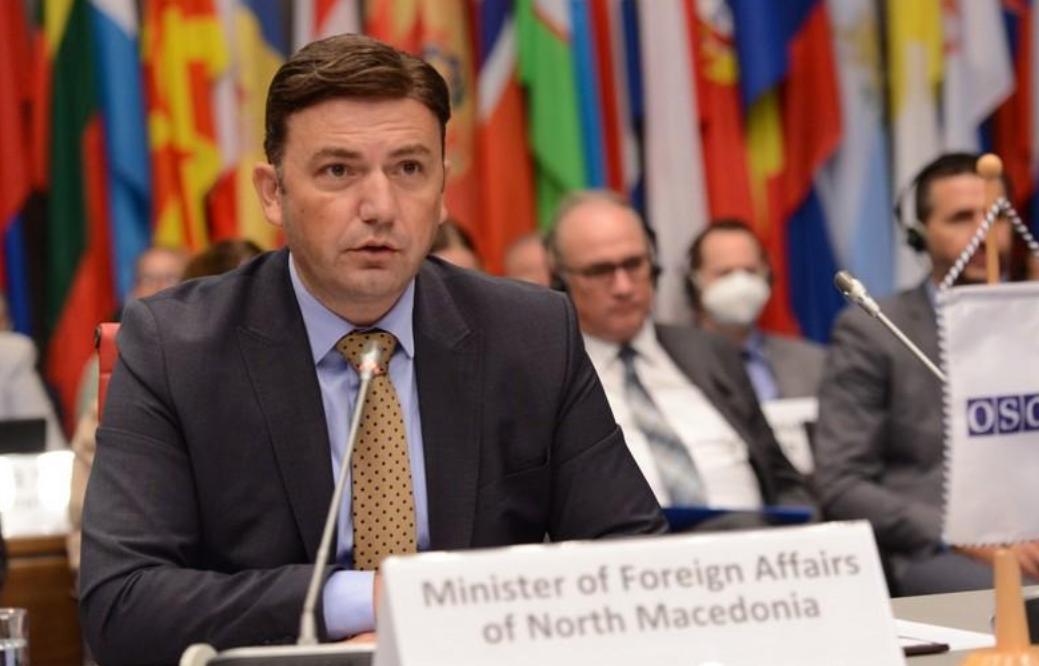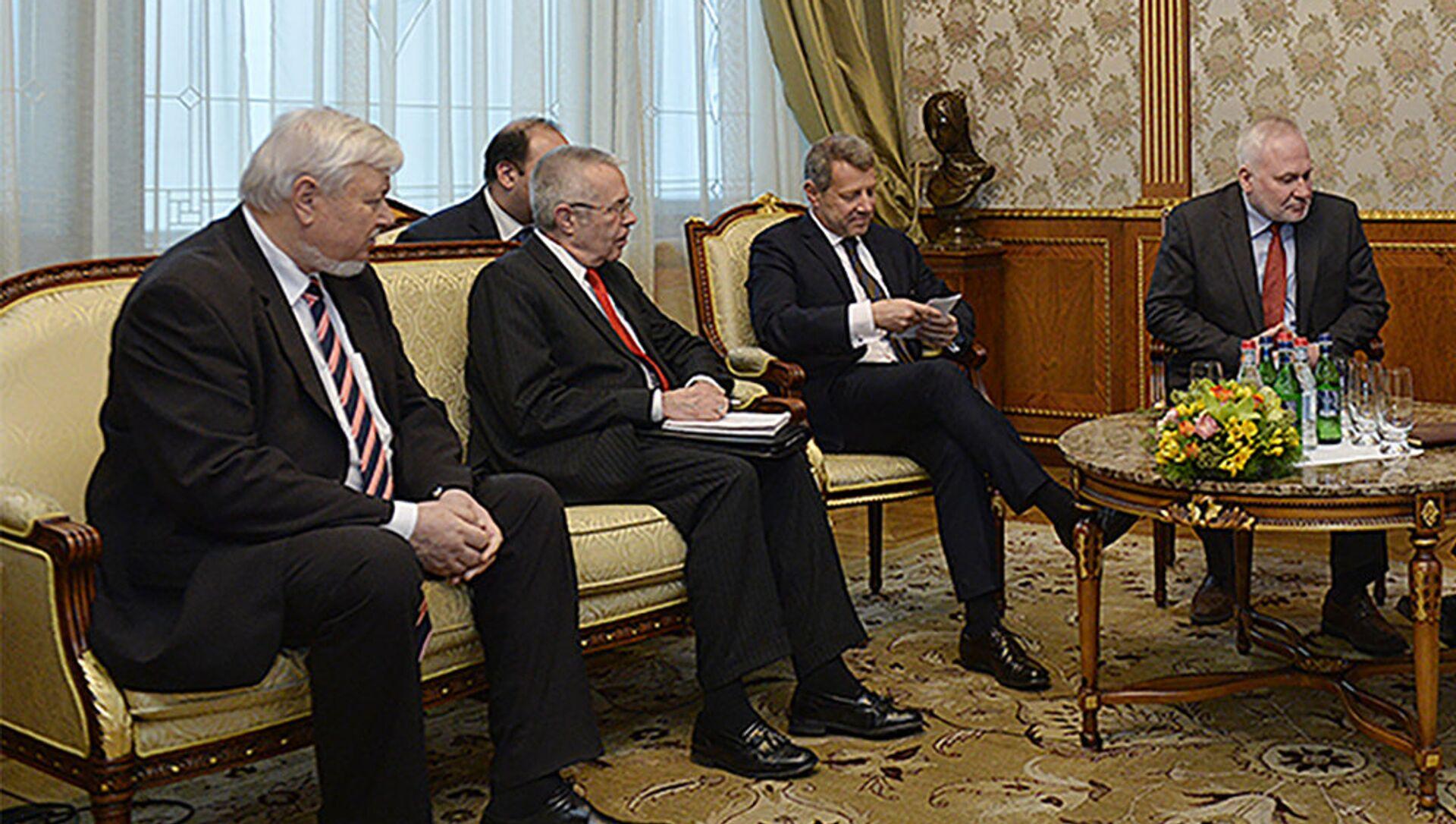Azerbaijan rules out second chance for OSCE to reconcile Baku and Yerevan There will be no second chance
It seems that the once authoritative Organization for Security and Cooperation in Europe (OSCE) is trying to once again take on the role of a “peacemaker” in the South Caucasus. As already reported, the day before, the current OSCE Chairman-in-Office and Foreign Minister of North Macedonia, Bujar Osmani, spoke in support of a dialogue aimed at concluding a peace treaty between Baku and Yerevan. “The chairmanship supports the continuation of the political process aimed at achieving a peace treaty between Armenia and Azerbaijan,” he said at the foreign ministers’ meeting in Skopje, adding that the OSCE offers a platform for “constructive dialogue” between regional countries.
Let us make it clear right away that such OSCE peacekeeping statements, as a rule, are voiced only at the declarative level and are far from practical implementation. Thus, just last month (November 2023), the fact that constructivism is needed for a peace agreement between Azerbaijan and Armenia was stated in a statement of this organization in connection with the visit to Azerbaijan of Chairman of the OSCE Parliamentary Assembly Piya Kauma (Finland) and the Special Representative on the South Caucasus by Kari-Henriksen (Norway).

However, statements are statements, but the reality is that in the current situation, the OSCE’s calls for “constructivism” and other conditionalities have lost their relevance. After Azerbaijan fully restored its territorial integrity, returning Karabakh, occupied by Armenia, under its legal control, the situation in the South Caucasus has changed dramatically in favor of Baku. Azerbaijan independently resolved the Karabakh conflict and is also now independently promoting a peace agenda in the region, contrary to the policies of Armenia and its Western patrons.
Azerbaijan does not certainly need OSCE mediation. Baku does not need calls or advice from an organization that has long discredited itself as a result of inaction, including in the format of the OSCE Minsk Group, which has sunk into oblivion, allegedly formed to resolve the Armenian-Azerbaijani conflict. Until recently, the destructive activities of the OSCE Minsk Group were spoken and written repeatedly, so it is probably unnecessary to repeat it.
The reality is that Azerbaijan has indeed been patiently hoping for institutional support from the OSCE for almost thirty years of Armenian occupation of its territories to resolve the Karabakh problem peacefully, but it never received it. And now the OSCE has, so to speak, “waken up,” which raises several questions for it. For example, why did the OSCE not call Armenia for constructivism when it occupied Azerbaijani territories? Why was the OSCE blind and deaf when Armenia carried out ethnic cleansing in Karabakh and committed genocide in Khojaly? Why did the OSCE not force Armenia to implement four UN Security Council resolutions? And finally, why did the OSCE head office not raise questions to the same Minsk Group for its absolute incompetence, when its co-chairs turned into ordinary regional tourists?

These are only part of the questions for this amorphous organization, although there is no doubt that none of them can be answered intelligibly by this agency. Nevertheless, they must understand that Azerbaijan does not need populist “peacekeeping” move not only from the OSCE but also from other international structures, which throughout the 26 years of occupation of Azerbaijani territories have remained criminally silent or shown us the double standards of the West.
By the way, this logic also includes the statements of Swedish Foreign Minister Ann Linde, voiced by her in November 2021 during negotiations with Russian Foreign Minister Sergei Lavrov, that the OSCE is allegedly using all available tools to resolve the conflict between Baku and Yerevan.
“We are trying to use all the tools that are available to us to resolve this conflict,” Linde said.
What specific instruments (obviously influences) did the then OSCE Chairman-in-Office have in mind? Maybe, the OSCE was trying to force Armenia to withdraw its troops from the “gray zone” in Karabakh? Or did the OSCE call on Armenia not to slow down the peace process? Of course not. All this European chatter was aimed only at justifying its inefficiency in resolving conflict situations. In this context, one should consider the criticism of the OSCE by Azerbaijani Foreign Minister Jeyhun Bayramov, voiced by him at a meeting of the OSCE Foreign Ministry Council in Skopje. As Bayramov stated, the OSCE was the only organization tasked with eliminating the consequences of Armenia's aggression against Azerbaijan. But the OSCE missed a chance to be part of the solution.
“Over the years, it has proven ineffective in eliminating Armenia’s large-scale illegal activities,” Bayramov said. On the contrary, the practice of ignoring our legitimate calls and tolerance of the status quo of occupation of Azerbaijani lands has further inspired Armenia. The reality is that Armenia sought to buy time for revenge while maintaining an army of 10,000 soldiers in Azerbaijan, equipped with heavy offensive weapons. This constitutes a flagrant breach of its obligations. No state will tolerate such an illegal presence on its soil, and Azerbaijan was no exception.”
Here is the statement of harsh reality, a statement of the worthlessness of the OSCE. Baku will not give her a second chance. And the laurels of an OSCE peacemaker certainly don’t shine...








